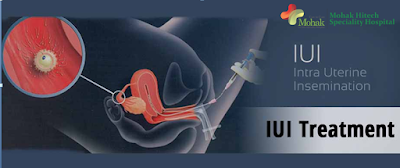The Fallopian tubes, also known as uterine tubes or salpinges are tubes that stretch from the uterus to the ovaries, and are part of the female reproductive system. The fertilized egg passes through the Fallopian tubes from the ovaries of female mammals to the uterus.
Parts of fallopian tube: -
A uterine tube contains 3 parts. The first segment, closest to the uterus, is called the isthmus. The second segment is the ampulla, which becomes more dilated in diameter and is the most common site for fertilization. The final segment, located farthest from the uterus, is the infundibulum.
Blocked fallopian tube: -
Blocked fallopian tubes don’t often cause symptoms. Many women don’t know they have blocked tubes until they try to get pregnant and have trouble.
In some cases, blocked fallopian tubes can lead to mild, regular pain on one side of the abdomen. This usually happens in a type of blockage called a hydrosalpinx. This is when fluid fills and enlarges a blocked fallopian tube.
Conditions that can lead to a blocked fallopian tube can cause their own symptoms. Only one fallopian tube is blocked, the blockage most likely won’t affect fertility because an egg can still travel through the unaffected fallopian tube. Fertility drugs can help increase your chance of ovulating on the open side.
Cause of blocked fallopian tube: -
The most common cause of blocked fallopian tubes is PID.Pelvic inflammatory disease is the result of a sexually transmitted disease, although not all pelvic infections are related to STDs. Also, even if PID is no longer present, a history of PID or pelvic infection increases the risk of blocked tubes.
Diagnosis: -
Blocked tubes are usually diagnosed with a specialized x-ray called a hystero salpingogram, or HSG. An HSG is one of the basic fertility tests ordered for every couple struggling to conceive. The test involves placing a dye through the cervix using a tiny tube. Once the dye is in place, x-rays of the pelvic area are taken.
If all is normal, the dye will go through the uterus and fallopian tubes and spill out around the ovaries and into the pelvic cavity. If the dye doesn’t get through the tubes, then you may have a blocked fallopian tube.
It’s important to know that 15% of women have a “false positive,” where the dye doesn’t get past the uterus and into the tube. The blockage appears to be right where the fallopian tube and uterus meet. If this happens, the doctor may repeat the test another time, or order a different test to confirm.
Laparoscopic Surgery: -
In some cases, laparoscopic surgery can open blocked tubes or remove scar tissue. Unfortunately, this treatment doesn’t always work. The chance of success depends on how old you are the younger, the better how bad and where the blockage is, and the cause of blockage. If just a few adhesions are between the tubes and ovaries, then the chances of getting pregnant after surgery are good.
Prevention: -
The majority of blocked fallopian tubes are caused by pelvic infections. Most—but not all—of these infections are caused by a sexually transmitted infection.Regular screening for STIs, as well as getting worrisome symptoms checked out right away, is an important step in preventing tubal infertility. If the STI or pelvic infection is caught early enough, treating it may help prevent the development of scar tissue.
However, most infections are not acute, and often do not result in any signs or symptoms. But “quiet” doesn’t mean harmless. The longer the infection is present, the higher the risk of scar tissue forming and creating inflamed or blocked tubes.
If are you searching the Best centre for IVF in Indore, come to the Mohak Infertility Center because Mohak Infertility Center is one of the Best IVF centres in India. We provide IVF, IUI, ICSI, Test tube baby treatment and Infertility treatment in Indore at very affordable price. Book an appointment Today Call now 7898047572, 8085-277666 for more information.
Request an Appointment / General Inquiry:- https://www.mohakivf.com/Contact-us.htm
Please go through our social media :
like our page to now more about IVF
Facebook :- https://www.facebook.com/MOHAK-IVF-1167147806785287/
Please do follow on Instagram
Instagram :- https://www.instagram.com/mohak_ivf/
To More Post :- What is IUI?

















